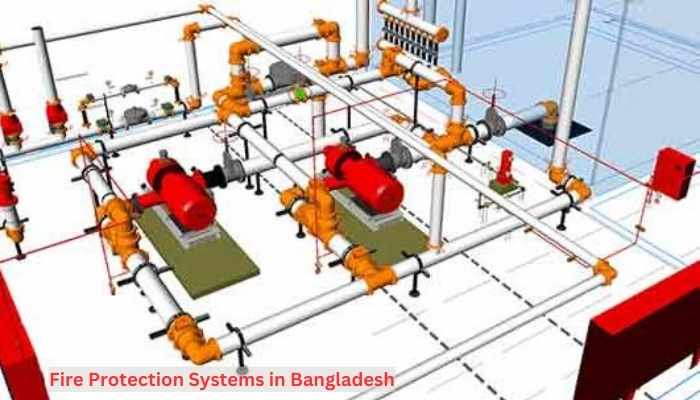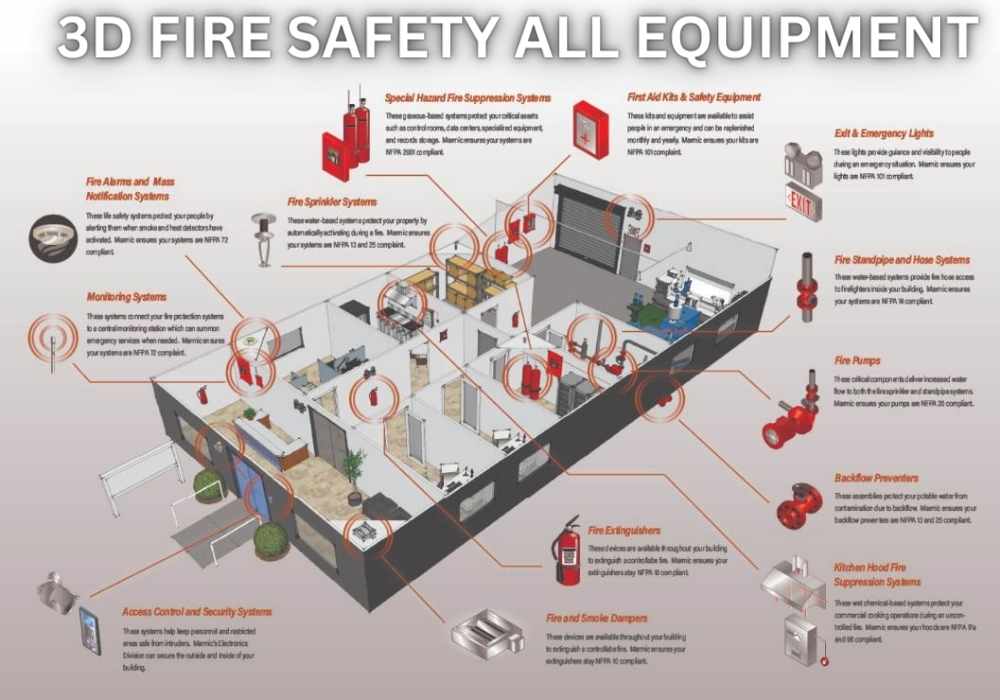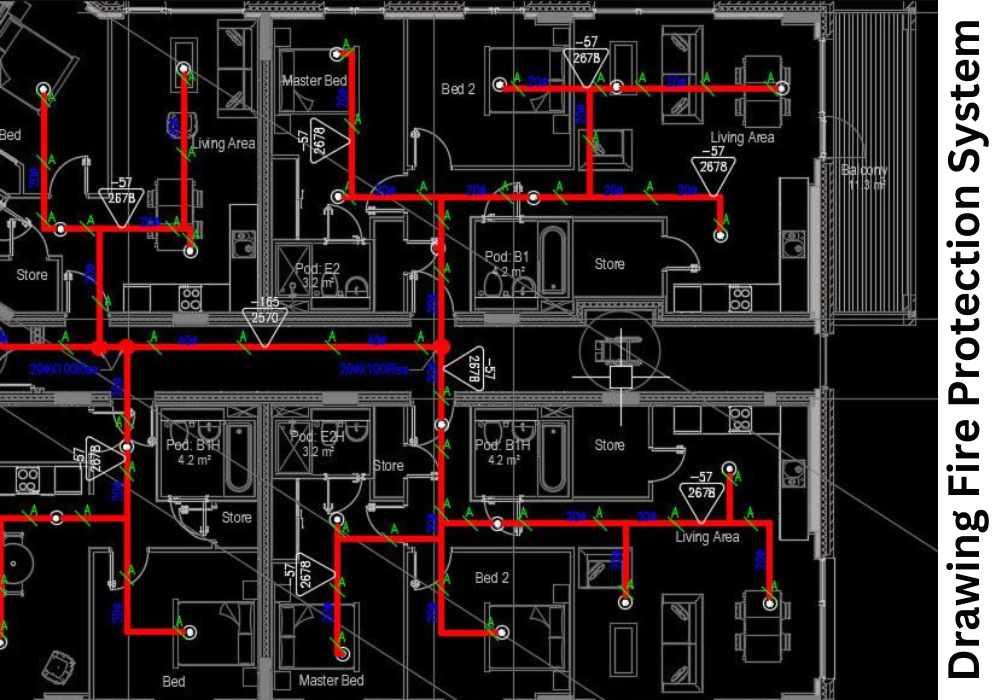Why Fire Protection Systems Are Essential in Bangladesh?
Bangladesh, a nation brimming with vibrancy and cultural richness, also faces the constant threat of fire hazards. From bustling commercial districts to densely populated residential areas, the potential for fire emergencies lurks around every corner. In this context, fire protection systems emerge as lifelines, playing a crucial role in safeguarding lives, property, and the nation’s overall well-being.

A Grim Reality Fire Accidents in Bangladesh
News headlines often paint a grim picture, with reports of devastating fire accidents claiming lives and causing widespread destruction. The high population density, coupled with prevalent use of flammable materials in construction, creates a perfect storm for fire tragedies.
Here’s a glimpse into the concerning reality:
- High-rise building fires: The increasing number of high-rise buildings in urban centers presents a unique challenge. Inadequate fire safety measures and limited escape routes can exacerbate the dangers during such incidents.
- Densely populated areas: The densely packed living conditions in many parts of Bangladesh make evacuation during fires incredibly difficult. This emphasizes the need for robust fire prevention and protection systems to minimize the risk of fires in the first place.
- Industrial fire safety: Industrial zones are especially vulnerable to fire outbreaks due to the presence of flammable materials, machinery, and electrical hazards. Implementing industrial fire safety protocols and appropriate fire protection systems is crucial to protect workers, prevent business disruptions, and safeguard valuable assets.

Fire Safety in Bangladesh
Addressing the fire safety challenge in Bangladesh requires a multi-pronged approach that encompasses:
- Fire code compliance: The Bangladesh National Building Code (BNBC) lays out stringent fire safety regulations for building construction, fire alarm systems, fire extinguishers, sprinkler systems, and emergency exits. Ensuring strict adherence to these codes is paramount.
- Fire prevention: Public awareness campaigns and educational initiatives play a vital role in educating citizens about fire hazards, safe practices, and the importance of fire drills. This empowers individuals to take responsibility for preventing fires in their homes and communities.
- Firefighting infrastructure: Investing in a well-equipped fire department, including trained personnel and modern firefighting equipment, is essential for effective response to fire emergencies.
Fire Protection Systems
While fire prevention remains the ultimate goal, fire protection systems serve as the last line of defense in the unfortunate event of a fire. These systems play a critical role in:
- Early detection: Fire alarm systems with smoke and heat detectors can sound the alarm at the earliest signs of fire, allowing for timely evacuation and prompt response.
- Fire suppression: Fire sprinkler systems automatically discharge water or other extinguishing agents to contain and control the fire, preventing its spread and minimizing damage.
- Safe evacuation: Emergency exits and fire escape routes must be clearly marked, well-maintained, and unobstructed to facilitate safe and swift evacuation during fire emergencies.
The Cost of Protection vs. The Cost of Loss
While the initial cost of installing and maintaining fire protection systems might seem like a burden, it pales in comparison to the devastating costs associated with fire incidents. These costs include:
- Loss of life: The human cost of fire is simply immeasurable. Fire protection systems can significantly reduce the risk of fatalities and injuries.
- Property damage: Fires can cause extensive damage to buildings, infrastructure, and personal belongings, leading to significant financial losses.
- Business disruption: Fire outbreaks can disrupt business operations, leading to lost revenue, production delays, and potential job losses.
Investing in fire protection systems is not just about safeguarding lives and property; it also protects the economic well-being of individuals, businesses, and the nation as a whole.

Moving Forward: A Collective Responsibility
Ensuring fire safety in Bangladesh is a collective responsibility. From individuals and families to businesses, government agencies, and firefighters, each stakeholder has a crucial role to play:
- Individuals: Take fire safety seriously. Invest in basic fire protection equipment like fire extinguishers for your home, participate in fire drills, and educate yourself and your family about fire safety practices.
- Businesses: Comply with fire safety regulations, install and maintain appropriate fire protection systems, and conduct regular fire safety training for employees.
- Government agencies: Enforce fire safety codes, support public awareness campaigns, and invest in robust firefighting infrastructure.
FAQ
Why are fire protection systems important in Bangladesh?
Bangladesh faces a high risk of fire due to factors like densely populated areas, high-rise buildings, and common use of flammable materials. Fire protection systems like alarms, sprinklers, and extinguishers offer crucial safeguards for lives and property.
What are the different types of fire protection systems available?
Fire protection systems encompass various components, including fire alarms, sprinklers, extinguishers, and fire escape routes. Each plays a specific role in detecting, suppressing, and facilitating safe evacuation during a fire.
How much do fire protection systems cost in Bangladesh?
The cost of fire protection systems varies depending on the type and size of the system required. While the initial investment might seem significant, it’s crucial to consider the potential costs of fire damage, including loss of life, property damage, and business disruptions. Investing in fire protection is ultimately an investment in safety and peace of mind.